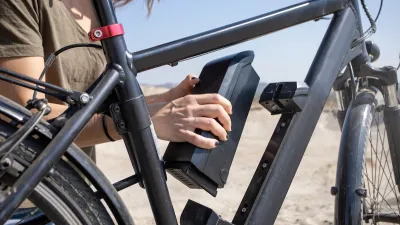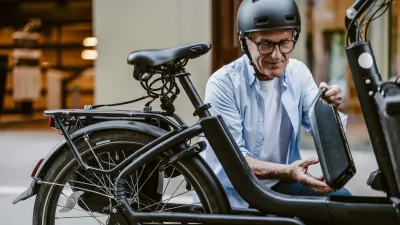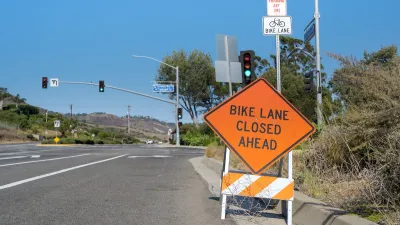Andrew C. Revkin delivers the good news out of Rio, where global leaders are gathered to argue incessantly over how not to address climate change. At a side event, $175 billion in loans have been pledged for sustainable transportation.
Despite pre-conference pessimism, something meaningful has been achieved the Rio+20 earth summit. OK, it didn't really come out of the conference itself, where "tussles over the language in the conference declaration" continue. But, Revkin reports on a substantial agreement announced at a side event.
"Led by the Asian Development Bank, and nudged by the Institute for Transportation and Development Policy
and other groups, the eight largest multilateral development banks have
committed to lending $175 billion over the next 10 years for
transportation projects that cut urban congestion and limit pollution
and energy waste."
Why is this important? According to Michael Replogle, the founder of the transportation and development institute, as the world's cities grow by a billion people over the next 20 years, "Having banks that have focused principally on building massive new roads focusing more on public transit, safer walking and bicycling, pollution reduction and improved freight systems is a huge breakthrough."
More importantly, "He [Replogle] said that these loans typically leverage 10 or 20 times more public
and private investment, meaning this initiative could shift trillions of
dollars from conventional road-building projects to more sustainable
transportation alternatives."
FULL STORY: Dispatches from Rio: Keeping Crowding Cities Moving

Alabama: Trump Terminates Settlements for Black Communities Harmed By Raw Sewage
Trump deemed the landmark civil rights agreement “illegal DEI and environmental justice policy.”

Planetizen Federal Action Tracker
A weekly monitor of how Trump’s orders and actions are impacting planners and planning in America.

The 120 Year Old Tiny Home Villages That Sheltered San Francisco’s Earthquake Refugees
More than a century ago, San Francisco mobilized to house thousands of residents displaced by the 1906 earthquake. Could their strategy offer a model for the present?

In Both Crashes and Crime, Public Transportation is Far Safer than Driving
Contrary to popular assumptions, public transportation has far lower crash and crime rates than automobile travel. For safer communities, improve and encourage transit travel.

Report: Zoning Reforms Should Complement Nashville’s Ambitious Transit Plan
Without reform, restrictive zoning codes will limit the impact of the city’s planned transit expansion and could exclude some of the residents who depend on transit the most.

Judge Orders Release of Frozen IRA, IIJA Funding
The decision is a victory for environmental groups who charged that freezing funds for critical infrastructure and disaster response programs caused “real and irreparable harm” to communities.
Urban Design for Planners 1: Software Tools
This six-course series explores essential urban design concepts using open source software and equips planners with the tools they need to participate fully in the urban design process.
Planning for Universal Design
Learn the tools for implementing Universal Design in planning regulations.
Clanton & Associates, Inc.
Jessamine County Fiscal Court
Institute for Housing and Urban Development Studies (IHS)
City of Grandview
Harvard GSD Executive Education
Toledo-Lucas County Plan Commissions
Salt Lake City
NYU Wagner Graduate School of Public Service





























